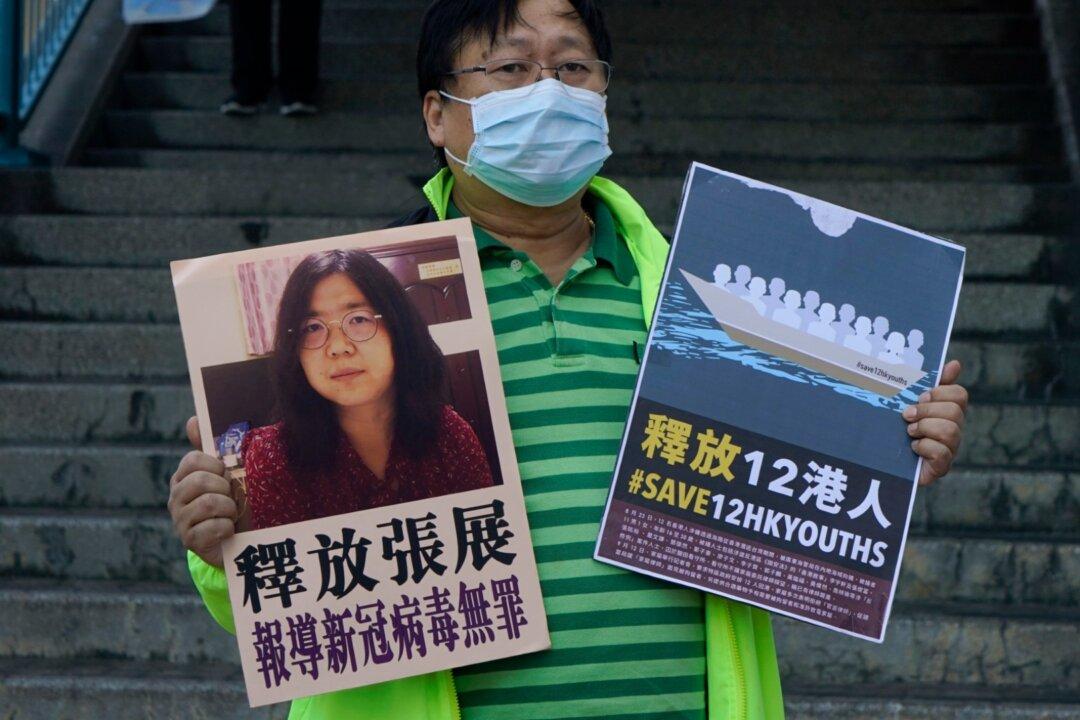A Chinese court has handed down prison sentences of up to three years to 10 Hongkongers who were arrested at sea in August by Chinese coastal guards before they could successfully flee to Taiwan.
On Dec. 30, the Yantian District People’s Court in southern China’s Shenzhen city sentenced Tang Kai-yin and Quinn Moon to three years and two years, respectively, for “organizing others to illegally cross the border.” Tang also was fined 20,000 yuan (about $3,060) and Quinn was fined 15,000 yuan (about $2,300).





